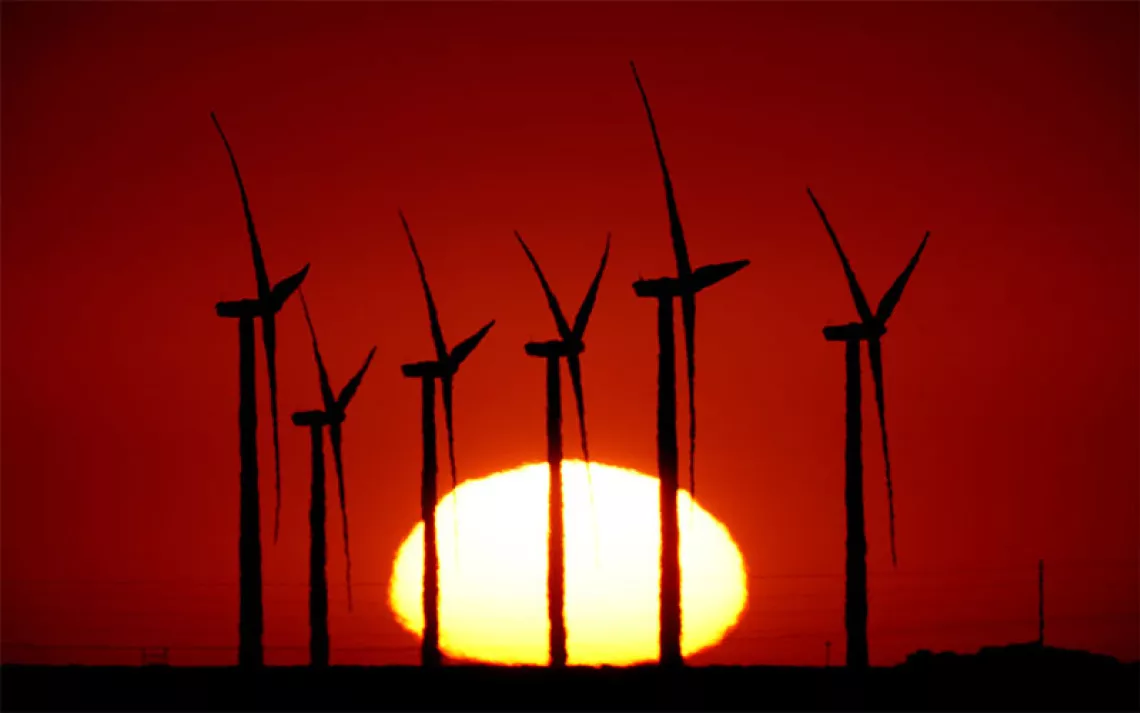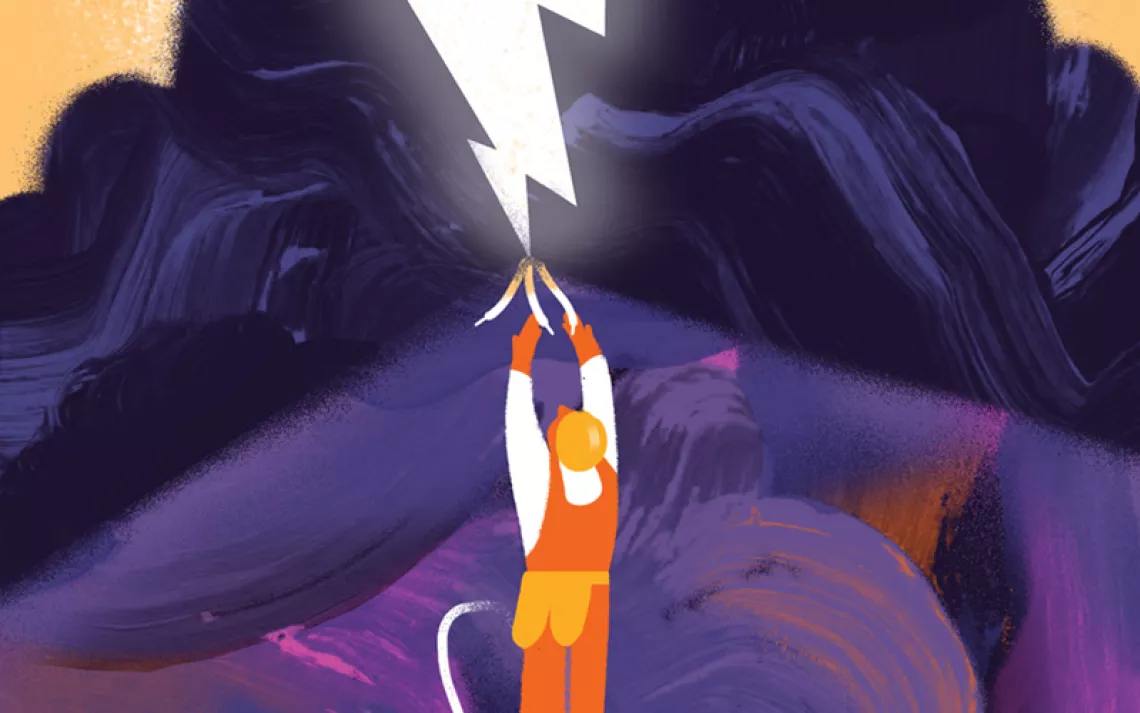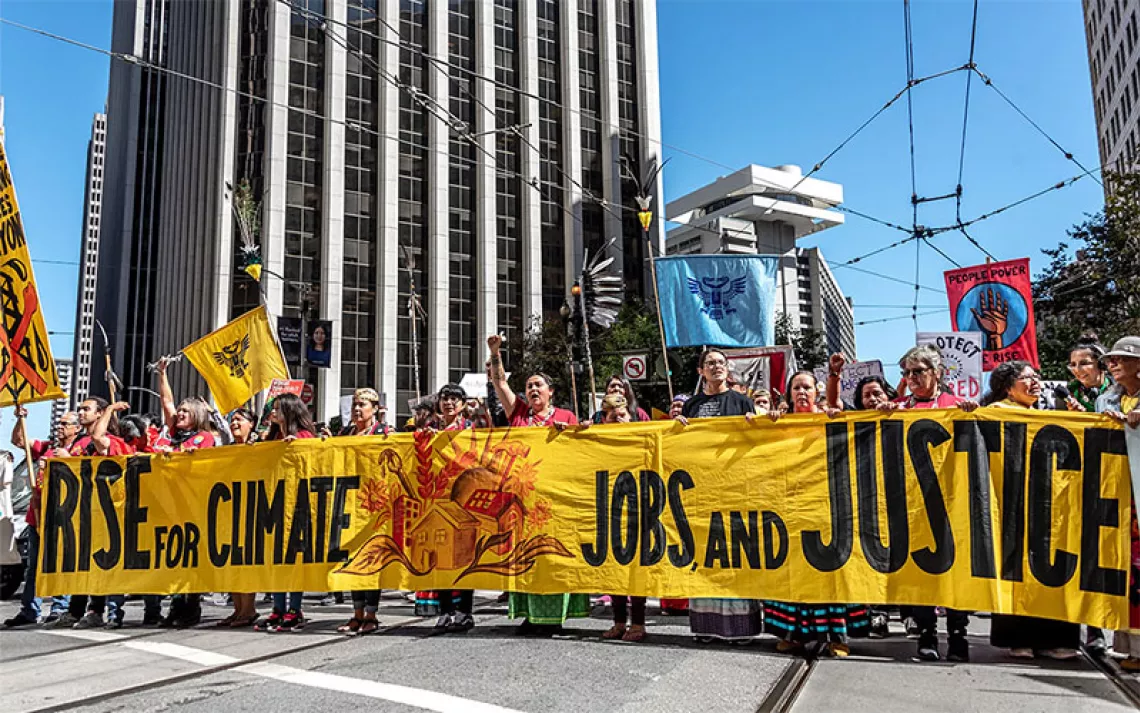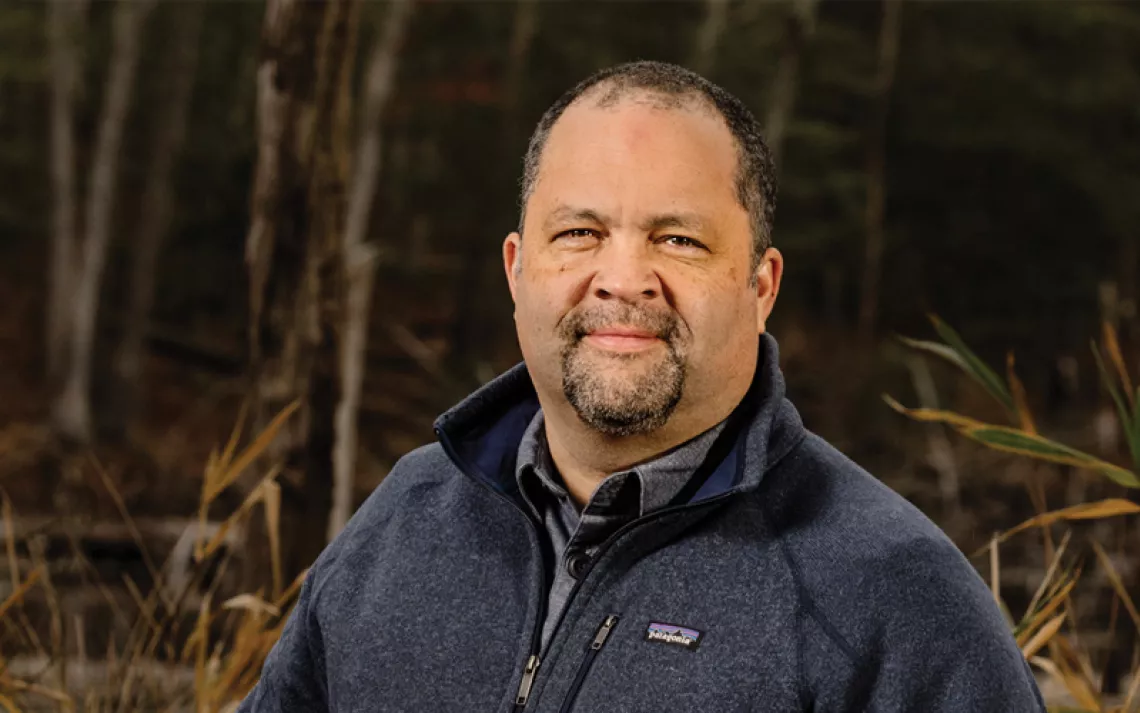Notes on the UAW Strike: The Clean Energy Transition Must Be a Just Transition
Union members must benefit from the move to electric vehicles
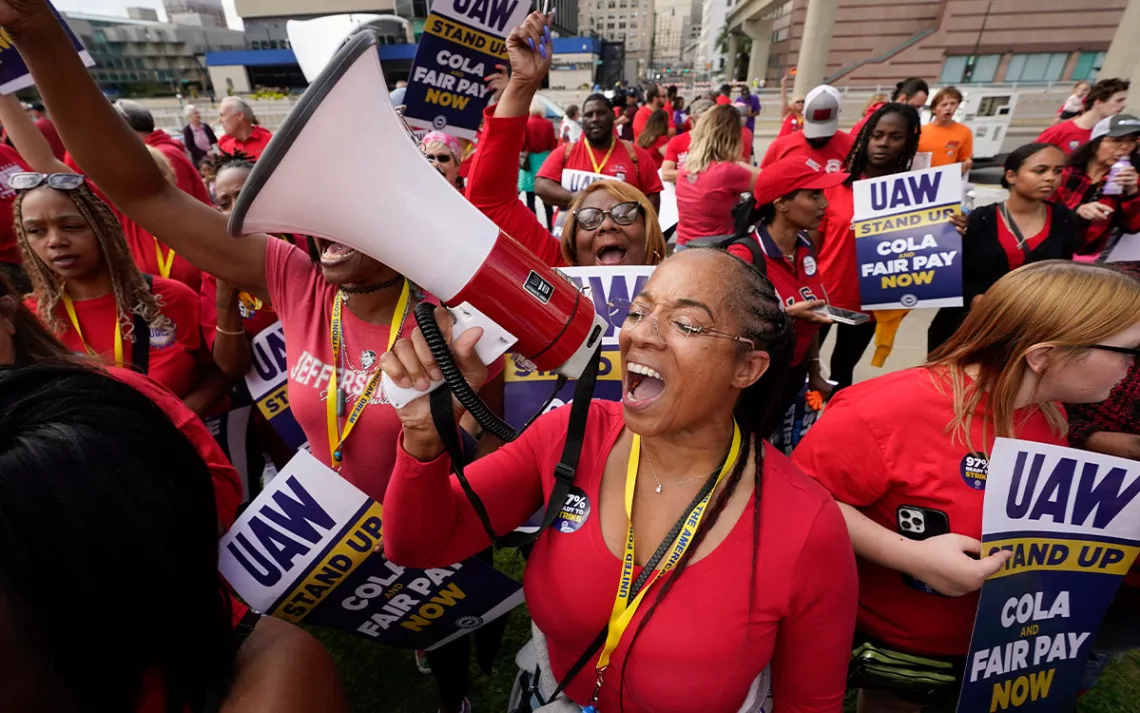
United Auto Workers member Tasha Johnson leads a chant while attending a rally in Detroit. | Photo by Paul Sancya/AP
Distributed by Trice Edney Newswire
When General Motors, Chrysler (now Stellantis), and Ford—the “Big Three” American automakers—were close to extinction 15 years ago, their workers and the American people stepped in to save them. The United Auto Workers (UAW) gave back wages and benefits they had every right to receive under a contract they had negotiated just a year before.
Now, rather than being paid back, union workers face getting left out of the future of the car business. And the rest of the country is being told we have Hobson’s choice when it comes to electric vehicles: We can have EVs, but only at a cost to our neighbors who build them.
We see this when Ford announces it is slowing construction of a battery plant in Michigan. And when Donald Trump, who leads Republican presidential primary polls, goes to a nonunion company outside Detroit to claim that “the auto industry is being assassinated” by the move away from dirty fuels.
Neither autoworkers nor the climate can afford for us to fall for this false narrative. If anything, we should see that momentum is moving squarely and more rapidly in the other direction. That’s what President Biden means when he says that talking about the climate is talking about good jobs.
For example, the New York City Council voted unanimously to move its fleet of more than 30,000 municipal vehicles—the largest in the country—to only zero-emissions cars and trucks beginning in 2025, and heavier vehicles after 2028. By 2035, the entire city fleet will be zero emission.
That’s the same year that California, New York, and 14 other states will require all cars and trucks sold to be zero-emission vehicles. The standards they’ve agreed on will prompt carmakers to increase the share of electric vehicles they sell slowly and continuously over the next 13 years.
This isn’t a rash rush to abandon the internal-combustion engine and gas pumps overnight, even if our warming planet may need quicker action. That fearmongering is inaccurate and misplaced. It’s a measured, unmistakable direction that UAW leaders see clearly. Their members must benefit from that, as they told me when I met with them in Detroit last month.
Instead, the Big Three have been pushing battery making and electric vehicle assembly to states that don’t offer union workers protection or to plants created through joint ventures that allow them to operate outside the UAW’s deal.
This is an all-too-familiar pattern in this country’s history—corporations, billionaires, and the politicians representing their interests pitting poor and working Americans, who actually aspire to the same future, against one another. They do it with hyperboles like assassination and altering established expansion plans.
We’re well beyond 2008. Profits for the Big Three automakers are soaring. Consumers want electric vehicles, and as a nation, we’re encouraging them to buy them through tax credits passed last year. It’s those cars and trucks that we’ll drive into a livable future. We must ensure that the clean energy transition is a fair one to the people who will make it possible.
 The Magazine of The Sierra Club
The Magazine of The Sierra Club
